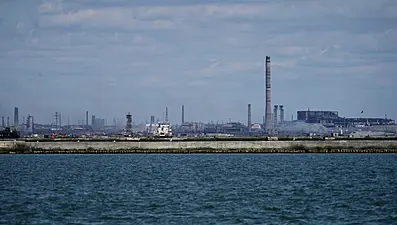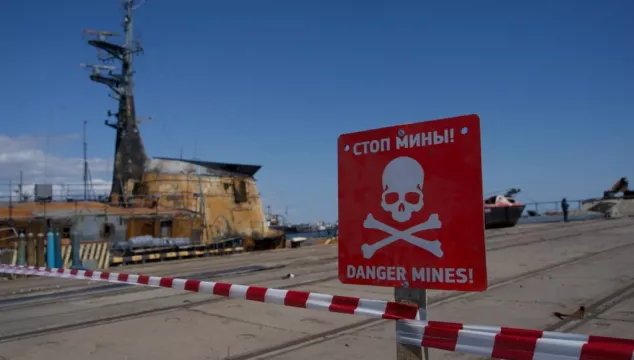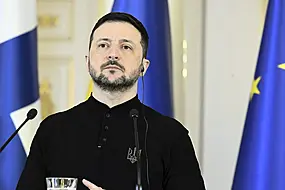Cowering in the labyrinth of Soviet-era bunkers far beneath the vast Azovstal steel works, Natalia Usmanova felt her heart would stop she was so terrified as Russian bombs rained down on Mariupol, sprinkling her with concrete dust.
Ms Usmanova (37) spoke to Reuters on Sunday after being evacuated from the plant, a sprawling complex founded under Josef Stalin and designed with a subterranean network of bunkers and tunnels to withstand attack.
"I feared that the bunker would not withstand it - I had terrible fear," Ms Usmanova said, describing the time sheltering underground.
"When the bunker started to shake, I was hysterical, my husband can vouch for that: I was so worried the bunker would cave in."
"We didn't see the sun for so long," she said, speaking in the village of Bezimenne in an area of Donetsk under the control of Russia-backed separatists around 30 kilometres east of Mariupol.
She recalled the lack of oxygen in the shelters and the fear that had gripped the people hunkered down there.
Ms Usmanova was among dozens of civilians evacuated from the plant in Mariupol, a southern port city that has been besieged by Russian forces for weeks and left a wasteland.
You just can't imagine what we have been through - the terror
She said she joked with her husband on the bus ride out, in a convoy agreed by the United Nations and the International Committee of the Red Cross (ICRC), that they would no longer have to go to the lavatory with a torch.
"You just can't imagine what we have been through - the terror," Ms Usmanova said. "I lived there, worked there all my life, but what we saw there was just terrible."
Young children were among those evacuated from the plant on Sunday - where people cowered underground, huddling together under blankets in the plant's bunkers and tunnels as the shelling tore their city apart.
Siege of Mariupol
The siege of Mariupol, in which Russian forces have pummelled the port city for nearly two months, has turned it into a wasteland with an unknown death toll and thousands trying to survive without water, sanitation or food.
Russian declared victory in the city on April 21st but hundreds of holdout Ukrainian fighters and civilians took shelter underground in the Azovstal works.

Negotiations to evacuate the civilians had repeatedly broken down in recent weeks, with Russia and Ukraine blaming each other.
But on Sunday, Ukrainian President Volodymyr Zelenskiy said a first group of 100 civilians being evacuated from the steel works would reach the Ukrainian-controlled city of Zaporizhzhia on Monday.
"Grateful to our team! Now they, together with (United Nations), are working on the evacuation of other civilians from the plant," Zelenskiy tweeted.
Moscow has turned its focus to Ukraine's south and east after failing to capture Kyiv in the early weeks of a war that has flattened cities, killed thousands of civilians and forced more than five million to flee the country.







